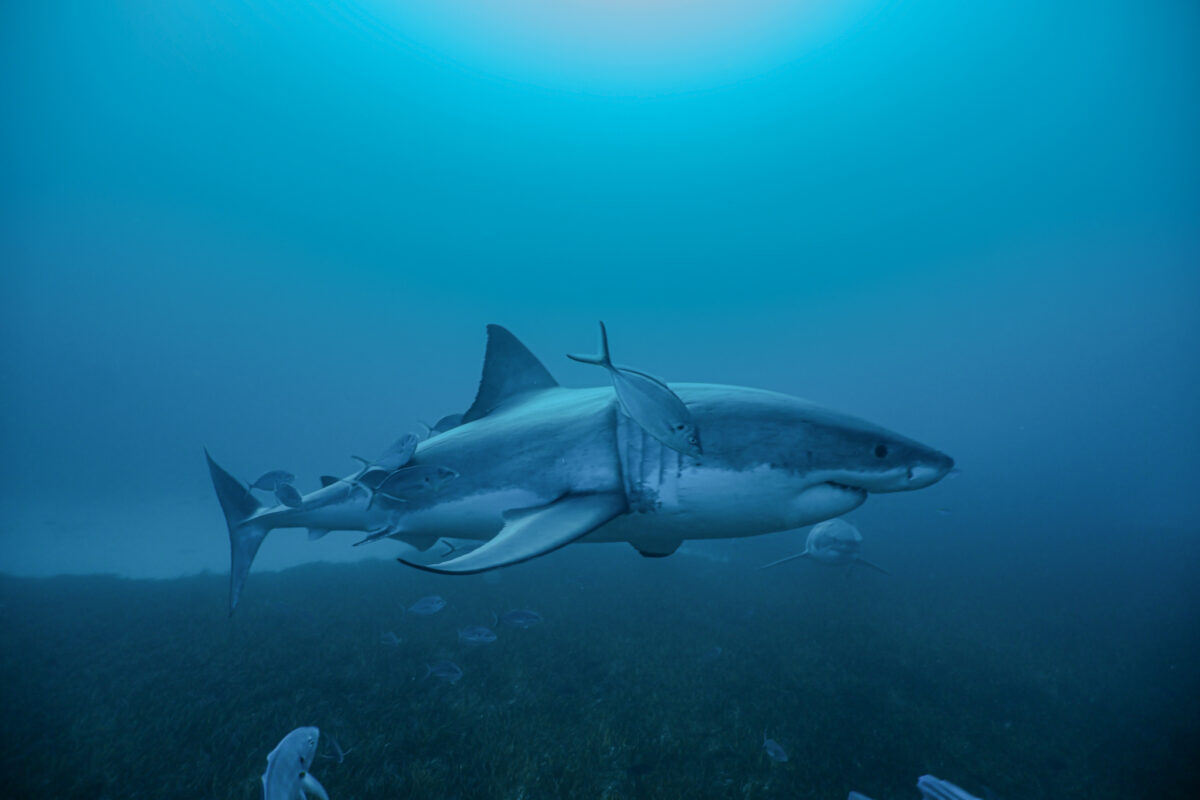
My first experience of the OWUSS year took me down to Port Lincoln in South Australia. One of my biggest weaknesses as a marine science student is having little field experience, especially on boats. So, my first move of the year? Get on a boat for a month to learn research, dive with white sharks and begin my maritime career!
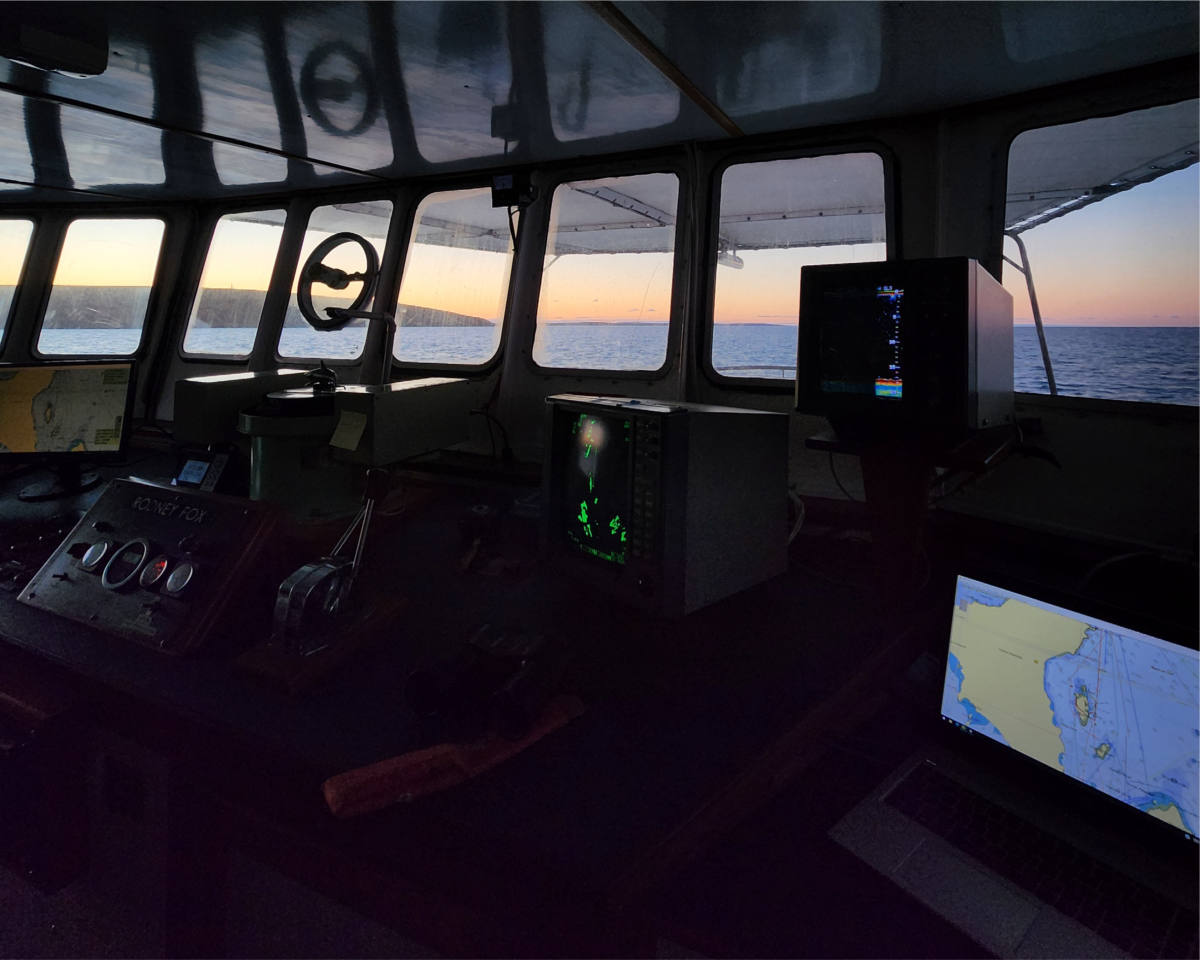
The first trip onboard was a scientific expedition led Professor Charlie Huveeners, Australia’s leading white shark scientist. Prof. Huveeners has been tagging sharks in this region for the last 20 years. His goal for this trip was to get more acoustic / satellite tags on sharks, as well as trial some electromagnetic repellents. Tagging animals provide us with information on where they move, how quickly they move, what behaviour they’re exhibiting and possibly connect this with what they’re eating. Some tags ping to hydrophones underwater, some to satellites when they come near to the surface, some are cameras that require a poor soul to head out to sea to retrieve the tag, which is easier said than done.
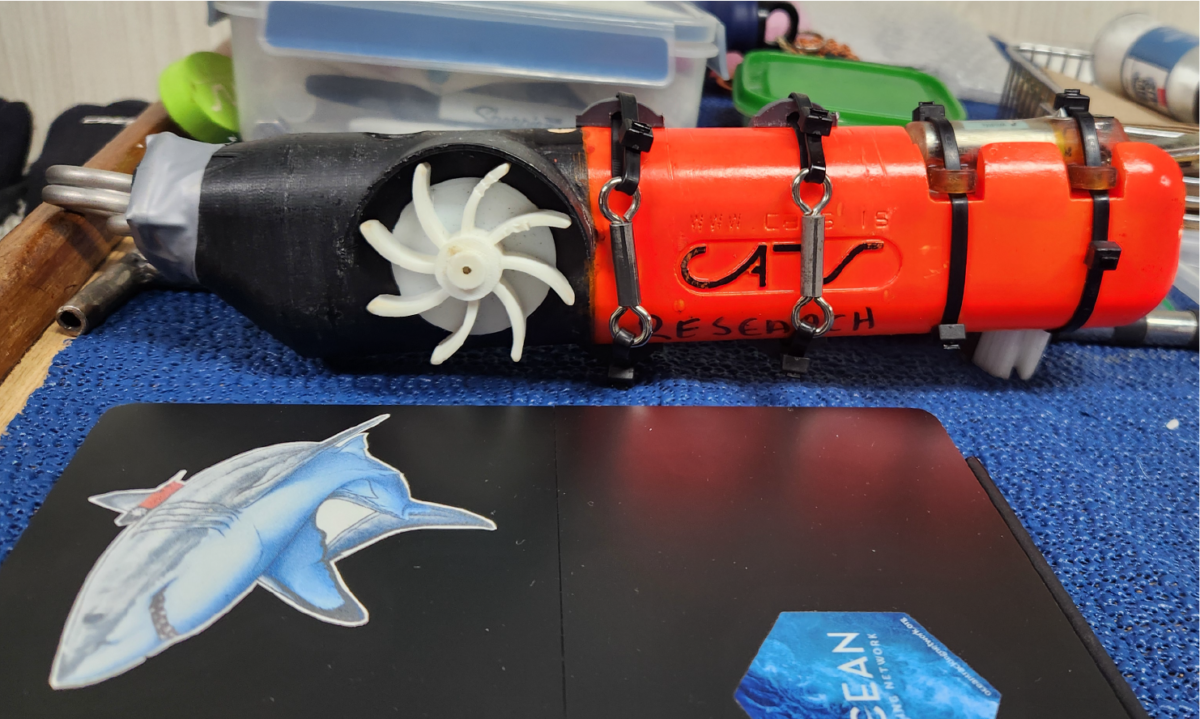
After the science concluded, we resumed the normal operation of cage diving for tourism. Seeing a white shark up close is absolutely mesmerising, it throws out every conceived idea the media portrays them as and shows you the reality.
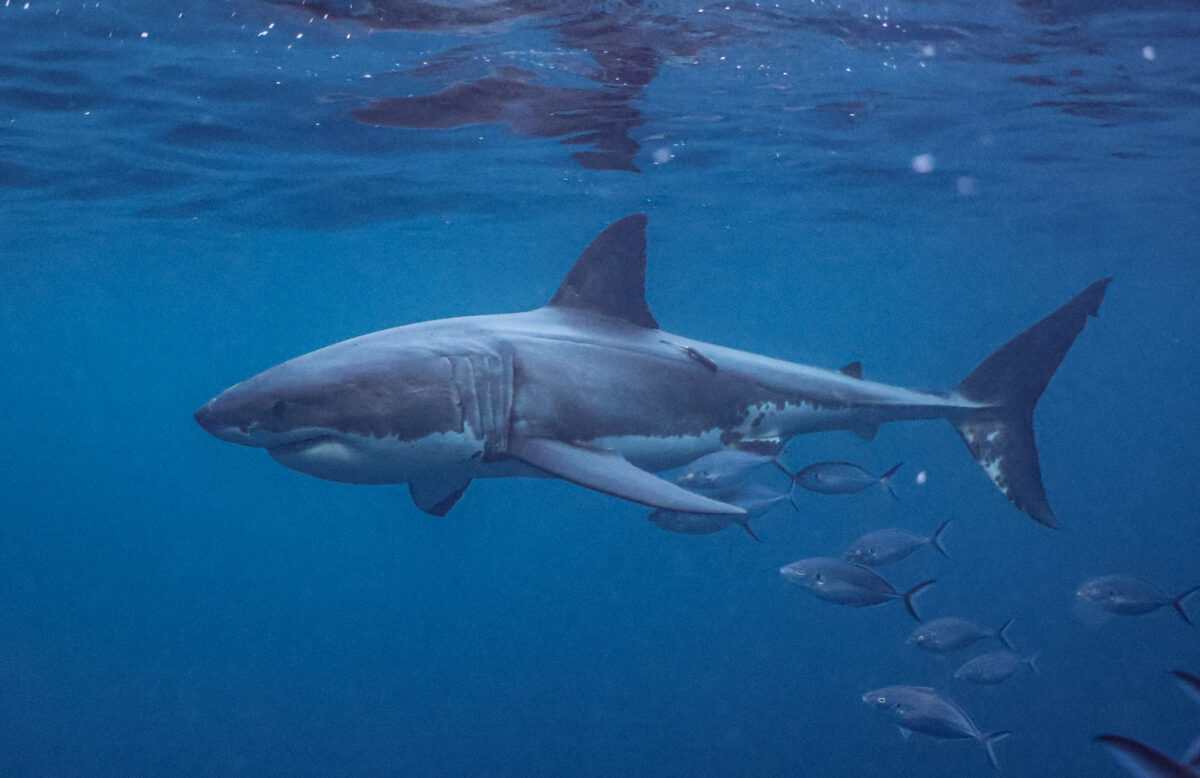
It was really cool seeing how differently each shark behaved, how shy some are and brazen others are. Seeing how big they are up close underwater is mind-blowing, they really do look like a submarine with teeth. I was stunned to see how slow all of them moved, only a few times did they accelerate towards food around them but for the majority of the time they were content just curiously swimming around us in a cage.
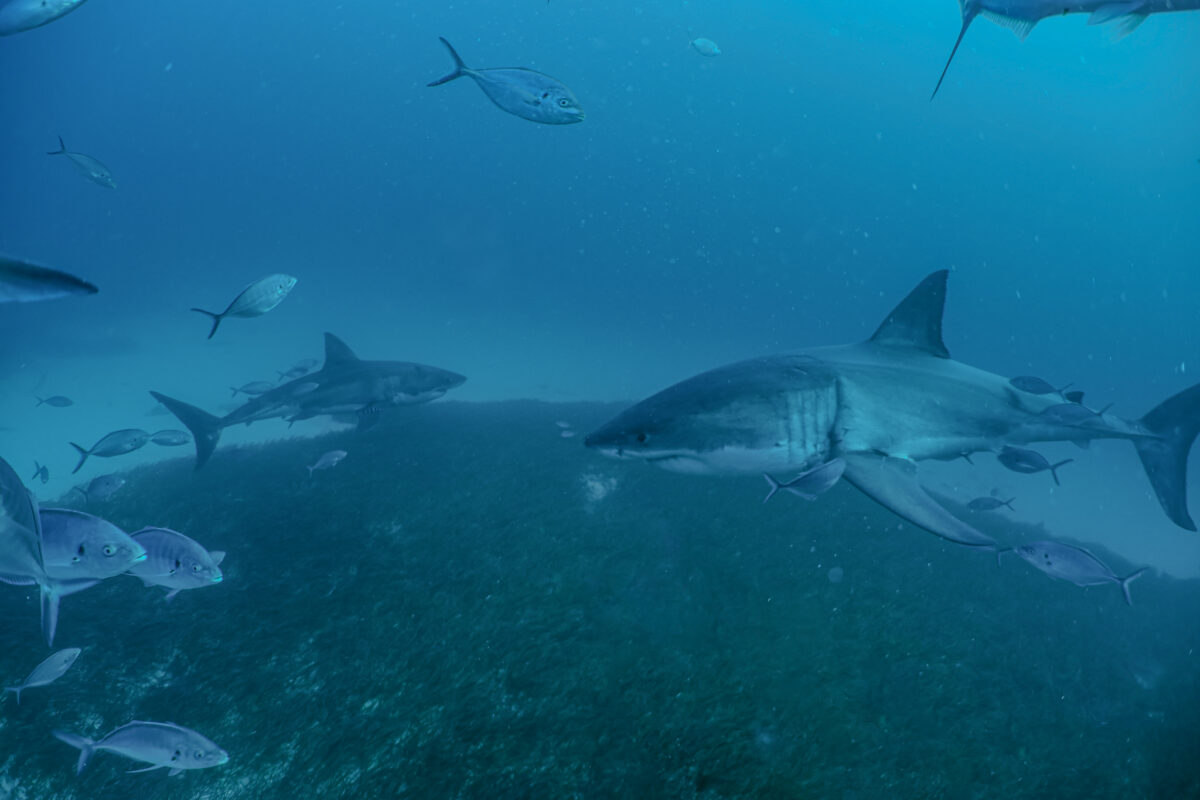
Another fun activity we did was sea lion swimming. They truly are puppies of the sea, and absolutely adore when humans visit them to play in the water. Snorkeling with them is like snorkeling with super-fast children, they do loops around you all day and zoom past the group like its nothing. They’re so photogenic it makes them the perfect subject to practice using my new underwater camera sponsored by Reef Photo & Video.
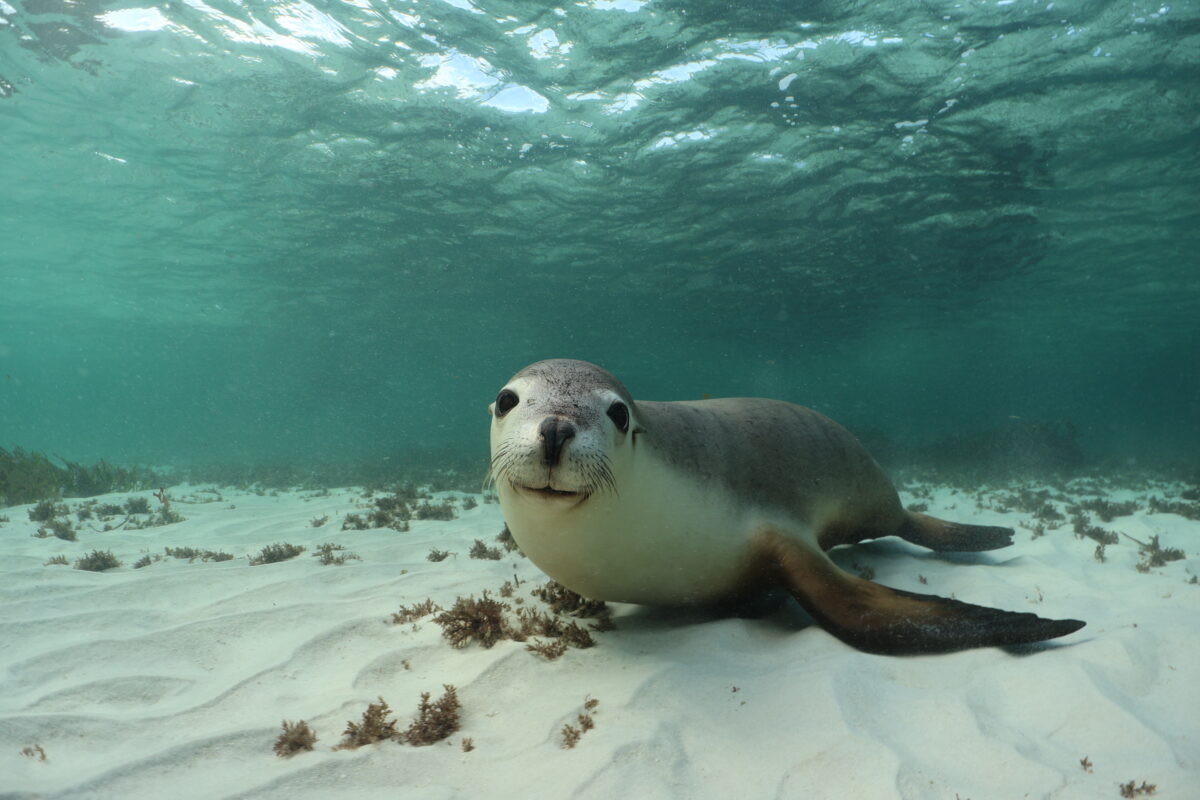
During this period I also begun my working towards obtaining my coxswain grade 1 near coastal. This maritime ticket allows you to skipper vessels up to 12m in nearshore waters, a highly advantageous trait if I am to become a marine scientist! It covers everything from knots, maritime law, to understanding and maintaining marine engines. It’s a very long journey to obtain if you’ve never spent lots of time onboard boats. RFSE was a wonderful and welcoming place to allow me to begin this.
I want to thank Andrew Fox and the entire Rodney Fox Expedition crew who hosted me over the month and a half I was there. I learnt so much about boating, sharks and running an expedition boat. I also want to thank the Our World-Underwater Scholarship Society for creating this opportunity, Rolex for sponsoring me, and Tabata Australia, Mako Eyewear and The Fourth Element for sponsoring and providing me with the necessary tools to tackle marine adventures such as this.